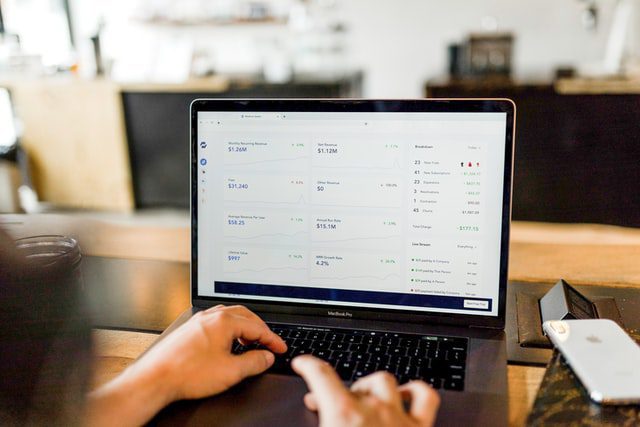
Link building is crucial for a good SEO strategy. The traffic and rankings you get from a healthy and diverse backlink profile are extremely valuable to your website and cannot be easily replaced. So it is essential to develop quality link-building practices. However, a part of those practices is knowing which backlinks to pursue. Not all potential backlinks are equally valuable. In fact, some may even harm you. But these SEO metrics to use in link building will help you identify the best options for backlinks, pursue them, and measure their worth.
The basics of link building
Link building refers to the practice of acquiring backlinks – hyperlinks on other websites that lead back to your domain. This is beneficial for two main reasons:
- the link helps internet users find your website and directs traffic to your page and
- search engines interpret the backlink as a recommendation for your website, which increases your chances of ranking well.
So it should come as no surprise that link building is essential for improving your SEO. In fact, many believe good backlinks to be one of the most, if not the single most important, factor in search engine rankings.

The importance of SEO metrics to use in link building
Although backlinks are frequently praised for being an excellent way to boost traffic to your website and improve your ranking, a poor link-building strategy can easily backfire. You may, for example, find yourself investing a lot of time and effort into getting a backlink that doesn’t help you at all, which would be a waste of resources. Or you might end up with backlinks from suspicious websites – this association can actually lower your ranking. So it’s crucial to find ways to measure the quality of backlinks, both potential and existing.
The most important SEO metrics to use in link building
When choosing which links to pursue or examining the success of your current link building strategy, there are many things you’ll need to take into account. Among the most important ones are:
Domain and page strength
One of the most important things to look at when analyzing backlinks is the domain authority of the website hosting the link. This is a score on a scale of 0-100; the higher the score, the better the odds that a page from the given domain will rank. Ideally, you want links on websites with a higher DA score than yours. A single backlink from a website with high authority will affect your own score better than multiple links from websites with low DA scores.
Page rank is pretty much the same metric but for individual pages. So if you have the chance to get your link on an existing page, choose one with a higher score.
The number of links
Quality, diversity, and consistency in link building are all very important factors for success. But just because quality matters doesn’t mean quantity doesn’t. Knowing how many backlinks you have is very important. Generally speaking, the more backlinks you have, the better. But just how many is enough depends on several factors. So start by comparing the number of backlinks you have with the number of backlinks your competitors do. This will give you an idea of what you’re up against and how much work you still need to do.

Linking root domains
The sheer number of links you have is not enough to judge the health and diversity of a backlink profile. If all your links are coming from the same website or two, you won’t be seeing much in terms of results. So it’s essential to know how many distinct domains are linking back to your website. That’s what linking root domains is a measure of. Instead of counting the links themselves, it will count the different domains your links are on. Once again, you should be aiming for a high number.
Anchor text
Google determines what the linked page is about by looking at the anchor text. So the best practice is to select an anchor that is closely related to the topic of the page you’re linking, preferably one that contains either the relevant keyword or the name of your brand. However, be careful not to over-optimize. Overusing the same anchor, especially if it’s the exact keyword you’re trying to rank for, can seem suspicious.
The relevance of the linking page
If you have the opportunity to acquire a backlink on a page with high domain authority, a high page rank, and lots of traffic, you should never reject it purely because the website isn’t in the same niche as yours. However, in an ideal scenario, the page linking back to your website will deal with similar topics. This ensures that the website your link is on is catering to a similar demographic as you and that people who follow your link won’t be disappointed. Too many backlinks on irrelevant pages can increase your bounce rate as those who follow the link and discover it’s irrelevant for them will leave immediately. You want to avoid that if possible.

The position of links on the page
The ideal position for a backlink is in the main body of the content, near the top of the page. This increases the odds of people seeing the link and signals its importance to Google bots as well. Of course, you won’t always be able to get a backlink in this position. And that’s fine; not all of your backlinks need to be ideal. But if you can influence the positioning, the higher the link is on the page – the better.
Why you need to know about the SEO metrics to use in link building
Link building is an art and a science. If you want to be successful at it, you cannot do it without a strategy. To develop that strategy, you need something to help you weigh the different options and measure your success. That’s precisely why you need SEO metrics to use in link building. They’ll help you estimate various potential backlinks, decide which ones pay off the most, and track your progress over time.
About Author:-
 Allison Holmes is a digital marketing expert specializing in content marketing. She first started her career as a content writer before working her way up the ranks. You can still read some of her writing on linkdepartment.com. Working from home for the last two years has helped her get closer to her two young children; these days, when she isn’t working, you can find her hanging from the monkey bars at the local park.
Allison Holmes is a digital marketing expert specializing in content marketing. She first started her career as a content writer before working her way up the ranks. You can still read some of her writing on linkdepartment.com. Working from home for the last two years has helped her get closer to her two young children; these days, when she isn’t working, you can find her hanging from the monkey bars at the local park.
